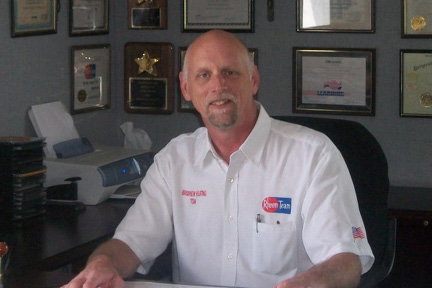Sponsored
Cottonwood and Your Air Conditioner
by Tom Olecki, Owner, Broadview Heating
If you haven’t had your air conditioning cleaned recently, I can almost guarantee you that the outdoor coil has become plugged with dirt, lint and especially cottonwood.
Cottonwood, a type of poplar tree that is present throughout Ohio, is native to portions of the eastern United States. In late spring and early summer, the fruit capsules open to release their small seeds attached to many cotton-like strands. It is the continuous release of these fluffy seeds for two to three weeks that results in the common name of “cottonwood.” Usually during peak season, the flying seeds can resemble winter snow. This imitation snow looks pretty in early summer, but these seeds can spell death to both your air conditioner and your electric bill.
What happens is the seeds can restrict the airflow through your outdoor air conditioning unit’s coils. The air conditioning coil is made up of aluminum fins that are spaced very closely, kind of like the radiator in your car. Your air conditioner requires a set amount of air to pass though this coil, as this is how the heat from your home is released. With a restricted coil, your air conditioner will work much harder which will cause your electric bill to skyrocket. Depending on how much you run the air and how close a cottonwood tree is, the coil could become so blocked that the compressor in your unit could overheat and fail. Compressors are very expensive to replace (over $1000) but a little intervention can save you this money.
It is best to take a look at your air conditioning coil if you can during and after the peak cottonwood season. If you see any buildup, get it professionally cleaned as soon as possible. Cleaning usually involves simply spraying off the coil with water. Be careful if you want to try this yourself as you could imbed the seeds deeper into your coils and make matters worse. Also, some units require partial disassembly to get at all sides of the coils and this could expose you to dangerous electrical hazards or moving parts. Also, NEVER use a pressure washer to clean this coil as you will damage it beyond repair.
Remember, there are other contaminants in the outdoor air that will plug your air conditioner such as dryer lint, dandelion seeds and dust, so a yearly cleaning is recommended to keep your unit working at peak efficiency and prolong its life.

Sponsored by
Questions are always welcome. For free help with your heating/cooling system, ask the experts at broadviewheating@sbcglobal.net or call 440-526-7310.
Opinions and claims expressed above are those of the author and do not necessarily reflect those of ScripType Publishing.

